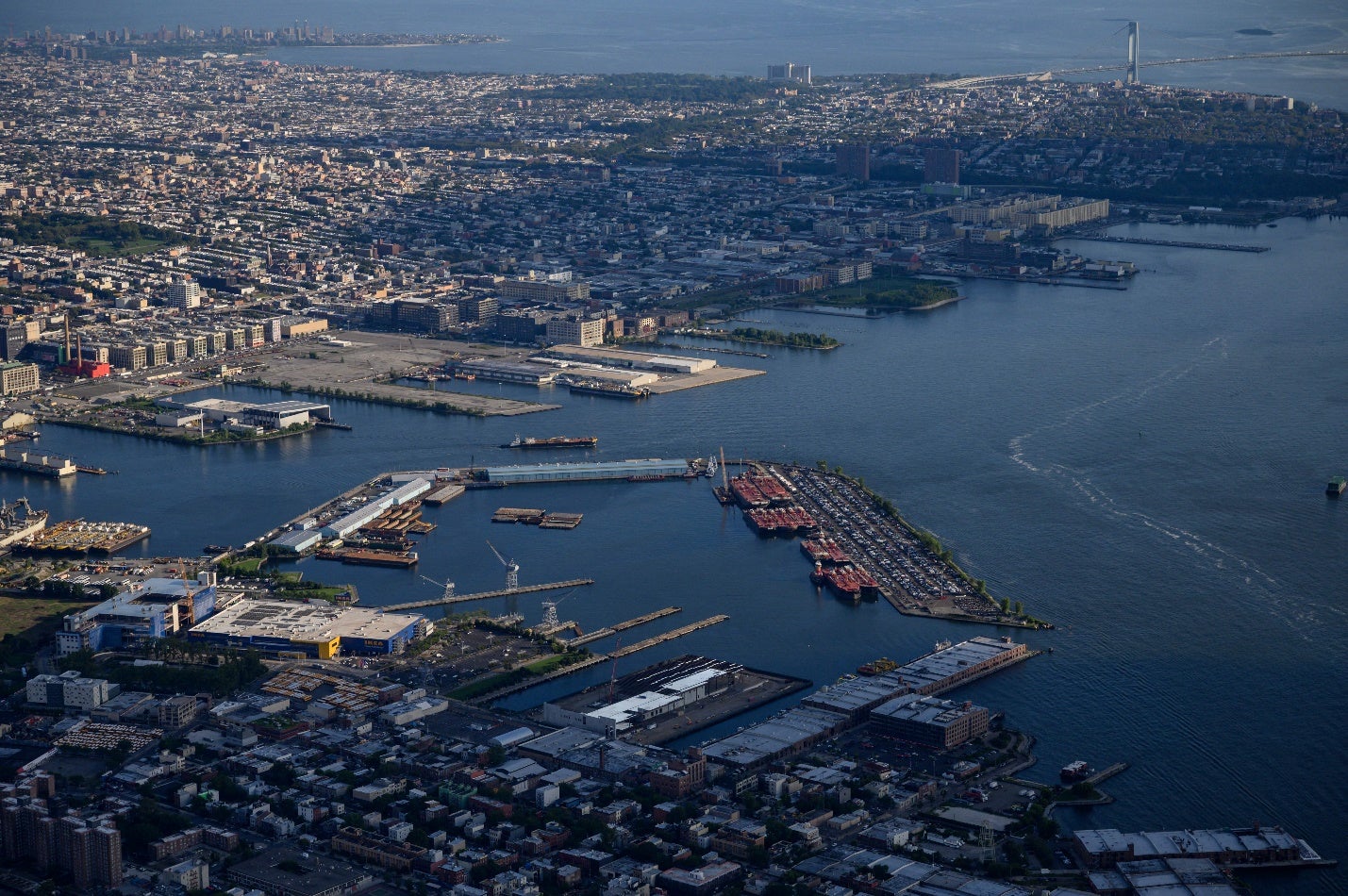Equinor and BP have announced they will convert the South Brooklyn Marine Terminal in Brooklyn, New York, into an offshore wind hub.
The companies will invest $200–250m in infrastructure upgrades to create an operations and maintenance hub, as well as a staging area for their joint Empire Wind and Beacon Wind projects. Together, these should produce 3.3GW, or enough electricity to power nearly two million homes in the New York area, when completed.

“This agreement marks a major step forward in our commitment to New York State to both provide renewable power and to spark fresh economic activity, while creating enduring jobs,” said Siri Espedal Kindem, president of Equinor Wind US, in a press release on 3 March.
In addition to the 73.1-acre development, Equinor announced in December 2021 the opening of a New York offshore wind project office in Industry City, which is adjacent to the South Brooklyn Marine Terminal.
Oil and gas companies are increasingly looking to pivot to offshore wind, with Equinor leading the way. It expects offshore wind to account for two-thirds of its targeted 12–16GW of global renewables capacity by 2030.
BP aims to become net zero by 2050. Like the other oil majors, it too is building renewables businesses.
In Europe and elsewhere, wind capacity deployments remain below what is needed to avoid dangerous climate change. A green Covid recovery could add 20GW of wind power in key developing economies, concluded a new report by the Global Wind Energy Council in February 2022.



